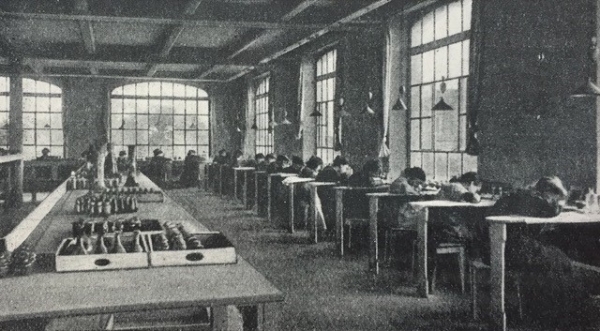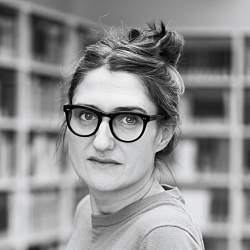The Art of Organizing Work: Structures, Procedures, and Economies of Craft Workshops in Early 20th Century
Tagung
The Art of Organizing Work: Structures, Procedures, and Economies of Craft Workshops in Early 20th Century
Concept: Léa Kuhn (ZI München) and Beate Söntgen (Leuphana Universität Lüneburg)
How do artists and craftspeople work together? How do these collaborations affect their respective statuses and the value of their products? How are decisions made during the processes of design and execution? What effects do the particular geographical, political and economic conditions have on the production process, reception and marketing of the art objects created?
These are some of the questions the conference will consider in relation to the period starting from the Exposition Universelle in Paris in 1900, which also took stock of the state of arts and crafts production at that time, until the beginning of the Second World War. This period is characterized by the increasing mechanization and automation of the production processes of arts and crafts objects, with established artists increasingly becoming involved in their manufacture. Discussions on the collaboration between the so-called “fine arts” and craft often revolve around the influence of art on craft. Our focus is on the reciprocity of exchange within this cooperation and the discursive intermingling between these two fields. How is work structured and what kinds of organizational forms are found in different types of workshops? How are these related to artistic demands, or to the use and functions of the manufactured objects?
In many avant-garde movements the applied arts played an important socio-cultural and political role. The economic side was often ignored however, for the sake of the requisite social interventions. In what ways do economic and political conditions determine the production processes and the cooperation between art and craft? What role do educational ideals and programs play? How does the educational training in workshops differ from that in art academies, beyond the orientation towards sales? What avant-garde practices found their way into the workshops and how does this affect production? And conversely, how does the knowledge of materials, techniques and processes generated in workshops influence forms of artistic expression?
The conference addresses a diverse range of disciplines including art, design and cultural studies, sociology, and in particular organizational sociology, and the economic sciences, and seeks new perspectives on artistic production at the margins of “classical modernism”.
26 June 2025
15:30 Peter Geimer, Léa Kuhn and Beate Söntgen: Welcome and Introduction
Chair: Léa Kuhn
15:45 – 16:30 Sophia Prinz: The Beauty of Making. Practices, Materials and Forms in Design Processes
16:30 – 17:15 Jérémie Cerman: “Modern” Decorative Arts in Paris Department Stores: The La Maîtrise Workshop at Galeries Lafayette
17:15 – 17:45 Coffee break
17:45 – 18:30 Klára Němečková: The Emergence of the Design Profession at the Deutsche Werkstätten Hellerau
18:30 – 18:45 Small break
Chair: Timon Beyes
18:45 – 19:45 Robin Holt: The Workshop as an Entrepreneurial Venture: Ethel Mairet, Weaving and the Imperative of Work (keynote)
19:45 Reception with buffet dinatoire
27 June 2025
Chair: Lena Bader
10:00 – 10:45 Anaëlle Vaissié: Makers, Translators or Designers? Embroiderers and Lacemakers in the France of the Belle Epoque
10:45 – 11:30 Melanie Vietmeier: Art and Life Intertwined. The Blue Rider’s Collective Practices in Reverse Glass Painting and Folk Art
11:30 – 12:00 Coffee break
12:00 – 12:45 Petra Lange-Berndt: Monte Verità as Craft Workshop: Working on the Body, 1900–1917
12:45– 13:45 Mittagspause (Buffet am DFK Paris)
Chair: Beate Söntgen
13:45 – 14:30 Jordan Troeller: The Subversive Stitch of Zurich Dada
14:30 – 15:15 Mirjam Deckers: Gunta Stölzl & the “Werkstattgedanke”: Redefining the Bauhaus Weaving Workshop
15:15 – 15:45 Coffee break
15:45 – 16:30 Vendula Hnídková: Pavel Janák. A “petit capitaliste” and producer of Czech design
16:30 – 17:15 Vera Wolff: Transwar Material Aesthetics
17:30 End of the conference
Verantwortliche Person am DFK





